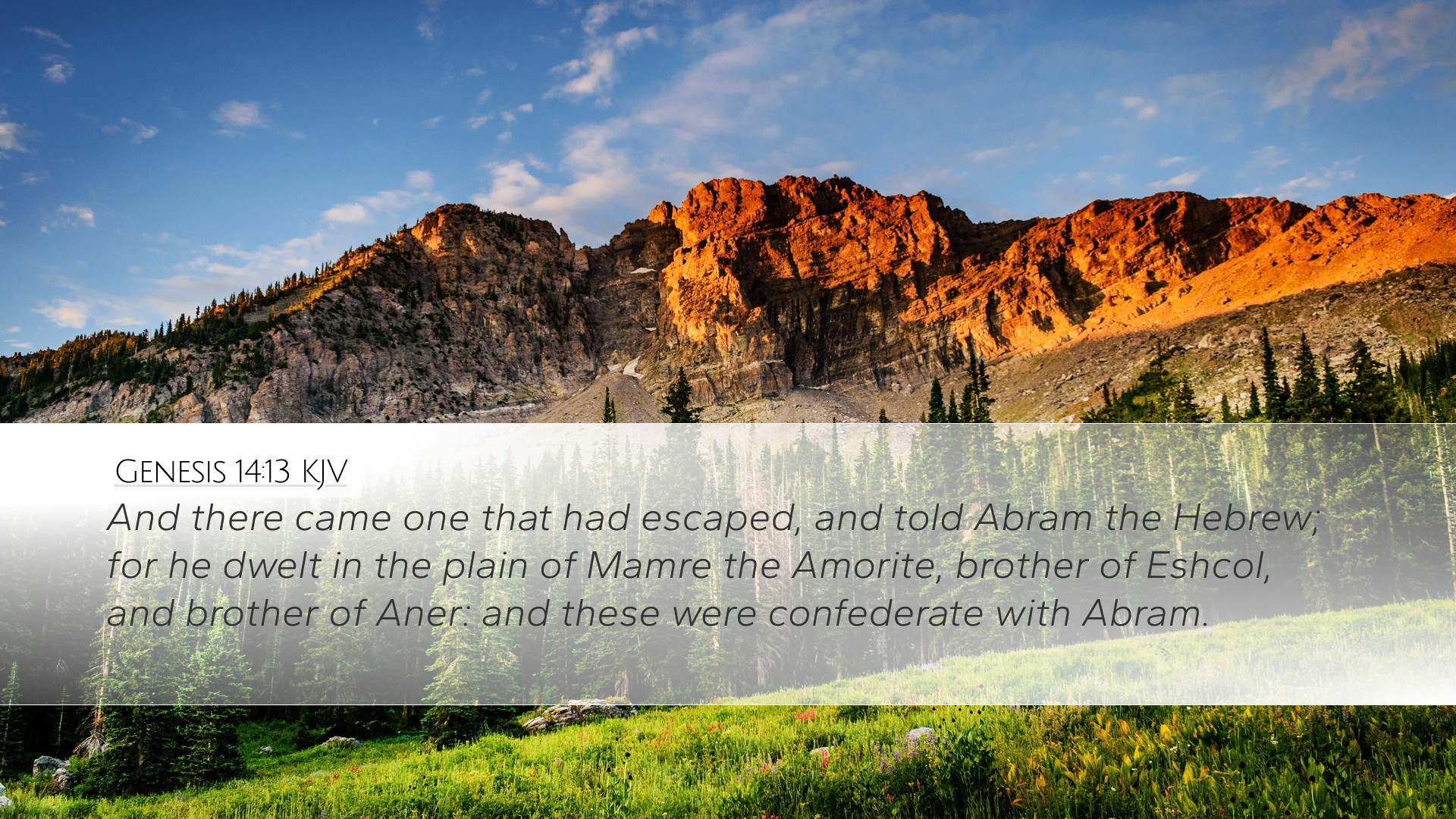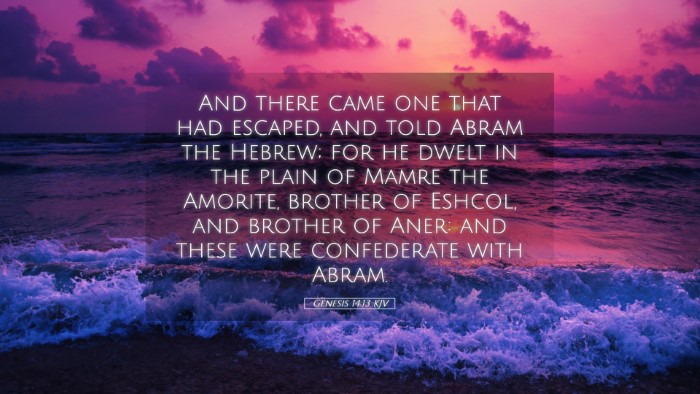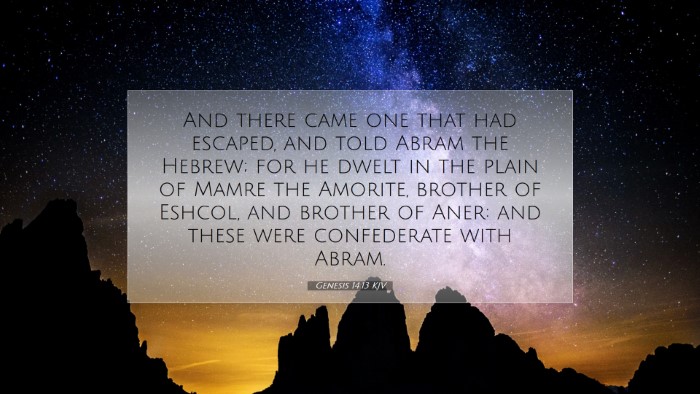Commentary on Genesis 14:13
Bible Verse: "And there came one that had escaped, and told Abram the Hebrew; for he dwelt in the plain of Mamre the Amorite, brother of Eshcol, and brother of Aner: and these were confederate with Abram." (Genesis 14:13)
Introduction
This verse occurs within the narrative of the conflict between various kings and serves as a turning point in the story of Abram's life. The arrival of a fugitive with news of Lot's capture leads Abram into a dramatic event that showcases his character and relationship with God. Exploring the theological, historical, and practical implications of this verse can greatly benefit pastors, students, theologians, and Bible scholars.
Thematic Summary
The primary themes present in Genesis 14:13 include the importance of community, the response to crisis, the character of Abram, and God's providential care.
The Importance of Community
The mention of partners, Mamre, Eshcol, and Aner, indicates Abram's reliance on community. Matthew Henry notes that “friends in our interests will stand by us.” Abram's alliance with these men illustrates the significance of having trustworthy companions who can support in times of trial. The gathering of allies exemplifies how collective strength provides a foundation for action and guidance.
A Response to Crisis
The arrival of the fugitive serves as a catalyst for Abram's action. Albert Barnes emphasizes that receiving news of Lot’s peril instigates Abram’s decisive response to save him. It challenges readers to consider their own response to crises—they must act with both urgency and righteousness, as Abram does here. It also poses the question of how one positions themselves in the face of a neighboring crisis. Highlighting the proactive nature of Abram's response calls for reflection on our own reactions to the difficulties faced by others in our community.
The Character of Abram
Abram is designated as "the Hebrew," which marks a cultural and theological distinction. Adam Clarke interprets this title as significant in showing Abram’s separation from the world and his alignment with God’s purposes. It reminds readers that one’s identity in God may wield influence beyond personal or familial ties. Abram’s bravery and willingness to confront great danger for the sake of his family reflect a faith that demonstrates loyalty and love.
God's Providential Care
Finally, the events surrounding this verse illustrate God’s providential care in Abram's life. The timing of the news reaching Abram suggests divine orchestration, a recurrent theme in various interpretations of the Genesis narrative. Both Henry and Clarke emphasize how God often utilizes unlikely scenarios and individuals as instruments in His plans. The alertness of the escaped individual is a vehicle for God’s intervention in showing Abram the path he must take, reinforcing the belief that God is sovereign in every circumstance.
Practical Applications
- Building and Maintaining Community: The necessity of forming strong alliances in faith communities is paramount, as seen with Abram and his allies.
- Proactive Faith: The importance of responding to calls for help promptly and effectively should resonate deeply within church practices.
- Identifying with Christ: Being identified as ‘Hebrew’ compels believers to reflect on their identity in Christ and how that translates into action.
- Trust in Divine Providence: Encouraging individuals to trust that God is present and active in their circumstances can foster resilience during challenging times.
Conclusion
Genesis 14:13 encapsulates a moment of critical importance not only within Abram’s narrative but for the spiritual understanding of community, crisis response, character, and divine providence. As readers reflect on this verse, they are invited to engage with its depths for themselves, to embrace community, react with urgency and righteousness, find their identity in God, and trust in His overarching plan through life's tribulations.


